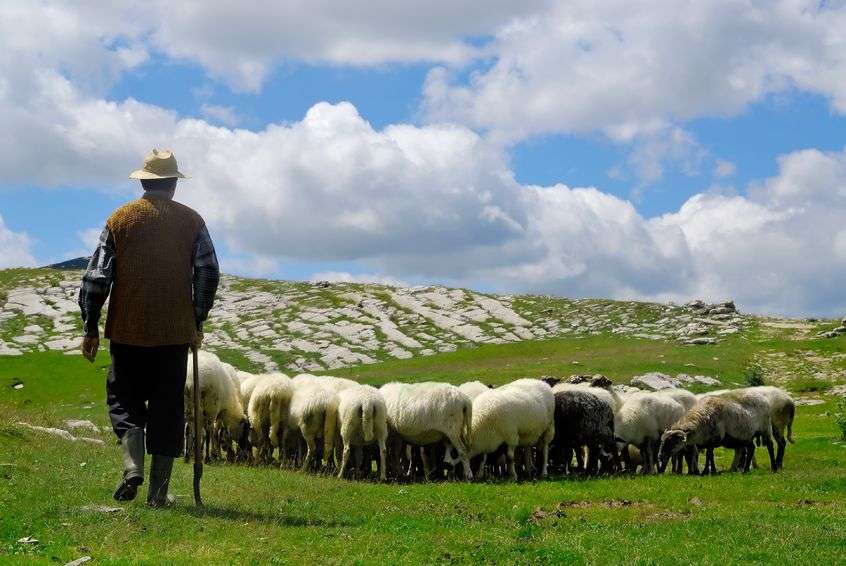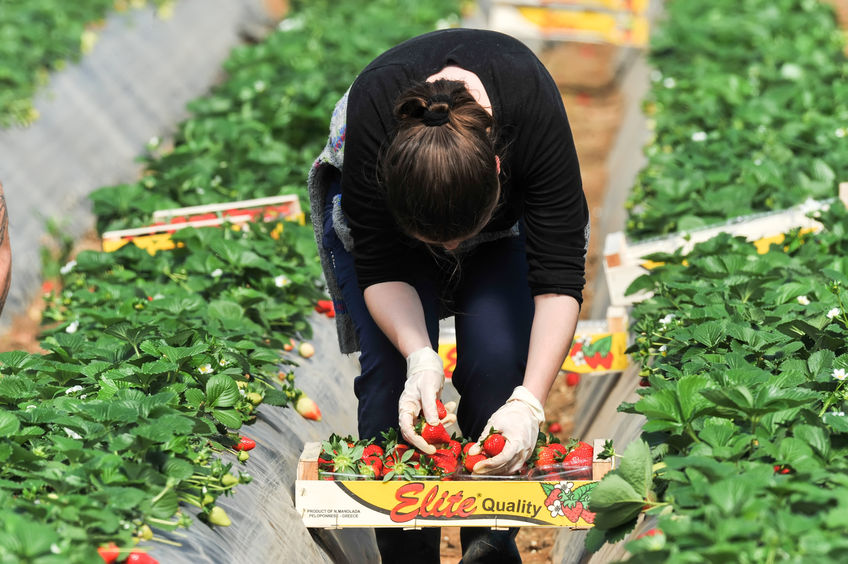
The Welsh farming sector has warned the government that it is in danger of 'being set back decades' when the UK leaves the European Union.
Welsh environment secretary Lesley Griffiths will be meeting her Westminster counterpart Michael Gove at the Royal Welsh Show today (24 July).
It also comes as farm leaders say uncertainty is 'damaging' farming and that trade with Europe was 'vital' for the sector.
They are expected to discuss the Repeal Bill which would see powers transfer directly from Brussels to London, despite agricultural issues being devolved.
Ms Griffiths has said Welsh agriculture could lose out.
"I'm worried the Withdrawal Bill, coupled with the UK government's lack of engagement with us to understand the needs of Welsh farmers, will mean this understanding is lost and the industry in Wales will move back decades," she said.
"Devolution has allowed us to tailor our policies for Welsh farmers with an understanding of their distinct needs."
Customs union
However, Defra Secretary Michael Gove has said that leaving the EU will provide the UK farming industry with 'new opportunities'.
Mr Gove said: "Leaving the EU will provide this hugely successful industry with new opportunities to grow and flourish and I am looking forward to meeting farmers and producers to hear their views on how we can drive the sector forward."

But the farming union NFU Cymru has called for a 'secure transitional arrangement' to maintain 'open and frictionless' trade with EU states post-Brexit.
Speaking at the opening day of the Royal Welsh Show, NFU Cymru president Stephen James said it was 'vital' for the UK to remain within a customs union with the EU until a comprehensive deal with agreed.
"Welsh agricultural businesses need some certainty to plan ahead," he said.
"Farmers, processors and everyone involved in the food industry in Wales need to make decisions now with some idea as to what marketing options will be open to them in 2019.
"A 'no deal' scenario with our main trading partner is not an option for Welsh agriculture," said Mr James.
WTO default position
He said the implications of moving to the WTO default position of Most Favoured Nation trading status 'does not bear thinking about'.
"What business could cope with a 46% tariff on lamb, a 65% tariff on beef, a 42% tariff on Cheddar cheese or a 53% tariff on wheat?
"We know a Customs Union is not perfect - we will not be able to implement new trade deals, and we will be very much bound by current EU arrangements.
"But, crucially, agreeing to remain in the Customs Union will give government the time to negotiate and agree a Free Trade Agreement with the EU without the constant ticking of a clock that, to all intents and purposes, stops at midnight on the 29th March 2019."
'Cross roads'
Plaid Cymru's environment spokesman Simon Thomas stressed that Welsh farming stood at a 'cross roads'.
"Agriculture will face the biggest impact of leaving the European Union according to research by the NFU, for every £1 invested in farm support in the UK, farming delivers £7.40 back to the economy.
"This is why we need the right regulatory framework and policies to minimise as much as possible the harm caused to the sector.
"Much depends on the trade negotiations carried out by the Westminster Government and how much voice Wales will have in the deal-making."
